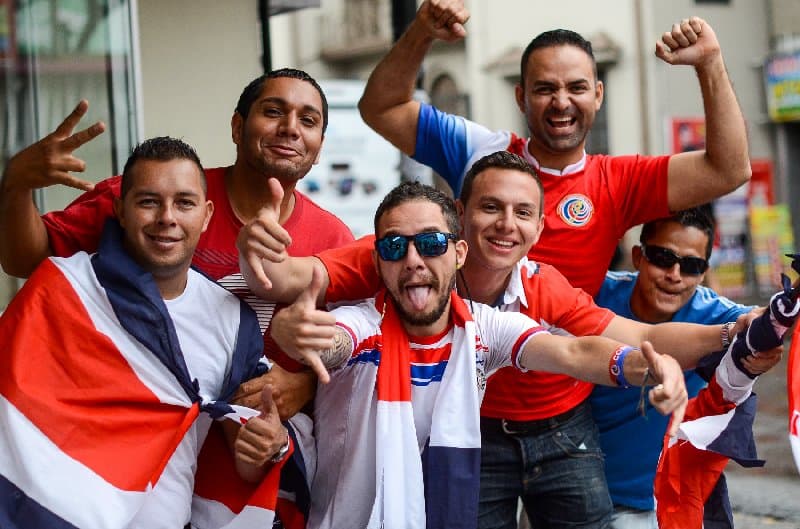There can be major adaptations in a minor culture shock. In terms of way of life and social norms, the gap between Costa Rica and the United States is narrow enough that I didn’t worry too much when I first moved to the States. After all, I learned English when I was 5 or 6, played “Candy Land” during my childhood and, like many Costa Ricans of my generation, can sing the full lyrics of the opening theme of “The Fresh Prince of Bel-Air,” dubbed in Spanish in a screechy voice that Will Smith would most certainly disown.
What did I need to know that wasn’t already there in the nine seasons of “Seinfeld,” every 90s boy band song, and Tom Sawyer’s practical wisdom? I wasn’t coming from a country where women wore burqas or you had to go on a squat toilet. I was coming from a country that, for better or worse, had long received the influence of the United States. I felt like I had the best of both worlds: salsa and Madonna, tamales and cheeseburgers. I had enhanced my already rich Latin American identity with thoroughly assimilated aspects of U.S. culture. Except they weren’t quite as assimilated as I thought.
The first thing I felt upon arriving in New Jersey was loneliness. Of course, that’s a common feature of the expat experience anywhere, but being Costa Rican is a particularly gregarious phenomenon. Perhaps due to the fact that most of us live very close to our family, our school friends and almost any person we’ve ever met, our lives are always crowded – physically, emotionally and chronologically. I’ve heard many U.S. friends say that one of the wonderful things about getting married is that, on your wedding day, you gather all the people from the different stages of your life into one place. Well, that’s what being Costa Rican is like. All. The. Time.
There are obvious advantages to having an overpopulated private life. You can always call Uncle Dilson when the car breaks down. Chances are someone you know will drive by while you wait for him. Going to a fancy party means a pilgrimage to some 15 closets, where you can borrow clothes from your cousins, your high school friends or your colleagues. And there’s the occasional local celebrity spotting at the supermarket, where it’s not uncommon to peek into a congresswoman’s shopping cart, take a selfie with a national football team player, or delve into the eating habits of that anchorman from the six o’clock news.
But even serious extroverts want some control over their social interactions. You don’t want to keep running into your old boyfriends when you are trying to find a new one. You don’t want to learn, at a family lunch, that your boss is also your third cousin twice removed. You don’t want a night out at the movies to look like, well, your college reunion. People sometimes need anonymity. They need the diluted collective experience that Ticos, by virtue of country size, are rarely afforded.
So when I say I felt lonely I don’t mean it in the existential no-one-gets-me kind of way. I mean it in the where-the-hell-is-everybody kind of way. I was 25 and had just understood that being surrounded by strangers is just another form of solitude. For once in my life, I had to reach out. Socializing required intention. And Americans, at least the ones I know, are particularly good at that.
I remember the first time I got one of those “save the date” emails. People wanted me to tell them what I was doing the second Saturday of the following month. What? I didn’t know what I was doing the following hour. There are only two moments when Costa Ricans plan ahead: New Year and Holy Week. And that’s only if you want to go to the beach. Everything else falls into a somewhat spontaneous (read chaotic) exchange.
Which is not to say that Americans are not spontaneous or that Costa Ricans never agree to meet 10 days later. It is just that, overall, there is more structure to socializing here. Life, especially life in a city, requires that you think about the frequency with which you want to see people. It asks that you form an opinion on how to allot your free time the following week and the week after that. It asks that you remember the complexity of other people’s networks and how you are only one part of your friends’ social architecture. It requires a sense of direction. Social direction.
I might never assimilate this completely, but it has helped me in ways I’m only beginning to understand. Whenever I’m back in Costa Rica now, I have a keen awareness of what my social priorities are. I miss those long talks over coffee at my mom’s place, so I make room for them. I need those soul-searching conversations with my friends at one in the morning, so I make them happen. I construct my social life, at a deliberate pace and with a deliberate course. There’s nothing stale in planning when and where and how you see your loved ones. It might be a way of letting them know how much you care. As for my old belief that I already had the best of both worlds – on the treasured occasions when I can combine the gregariousness of Costa Rica with the thoughtfulness of U.S. social life, I feel that I actually do.
Raquel Chanto is a lawyer and policy wonk trying to survive international bureaucracy in Washington, D.C. In the new monthly column “Please Send Coffee!” she explores aspects of Costa Rican culture and how they contrast with life abroad.






